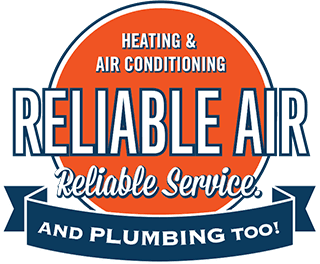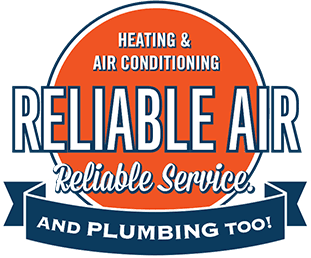Today we wanted to answer a question that’s been on a lot of people’s minds in the Covid-19 era: is it worth it to install a whole-home air purification system?
Our professional opinion is, yes. It’s definitely worth it. We’ve installed hundreds of these systems in homes across San Marcos, and all of them help reduce the number of airborne pollutants found in indoor air.
That being said, you may not come to the same conclusion we have. To help you answer this question for yourself, we’ve put together some of the most important factors of purchasing an air purifier.
This blog will cover the following:
- How much do air purifiers cost?
- What are the benefits of having an air purifier in the home?
Alternatively, you can always speak to one of our HVAC professionals about the pros and cons of whole-home air purifiers. We’ve been installing these systems for years, and would be happy to share our experiences with them during a free consultation. Just give us a call at 512-580-8837.
How much do air purification systems cost?
The first step to answering whether an air purifier is worth buying is to know how much these systems cost.
Most whole-home air purifiers cost around $2,000 to $3,000 on average, which includes a professional installation. But homeowners could pay as little as $1,500 and as much as $5,000 or more depending on the type of system they get.
Whether a system is worth it or not to you has a lot to do with how much it costs. But as you can see above, the price range for these systems is considerable. So there’s leeway here to find a system that works for each homeowner’s budget.
Some of the most important price factors include:
- Ductwork modifications: Whole-home air purifiers filter out contaminants before they enter a home’s ductwork. If that ductwork is in disrepair or filled with dust and other debris, it limits the effectiveness of the new unit as a whole. That’s why some installs may require repairs or even additions to the ductwork before the new purifier can be installed.
- Filtration capabilities: Some systems are better than others at filtering out particles of various sizes. We’ll discuss filtration capabilities in greater detail later in this article. For now, we simply want to convey that more expensive systems have better filtration capabilities.
- Connected “smart” systems: Some air purifiers can be paired with smart thermostats and apps, adding a level of convenience and functionality that non-connected systems don’t possess. For instance, some systems can warn you via an app that it’s time to change the filter.
What are the health benefits of having an air purifier?
Now that you know how much these systems cost, the next step is to understand the health benefits that come along with having such a system.
Whole-home air purifiers help:
1. Reduce negative health effects caused by trace particles of carbon monoxide and other toxic compounds
We all know carbon monoxide in large amounts can kill. But did you know that trace amounts of carbon monoxide (CO) can circulate within a home even without a major natural gas leak? Water heaters, dryers and vehicle exhaust that comes in from the garage can all increase the level of CO inside a home.
Air purifiers significantly reduce the amount of carbon monoxide that is within a home. That, in turn, can alleviate symptoms which are caused by trace CO, such as headaches, nausea, fatigue and dizziness.
2. Improve filtration, which is especially important in modern, energy-efficient homes
Improvements in home construction, insulation materials and higher-quality doors and windows have made the modern home very energy efficient. An unintended consequence of this however is that the air inside the home is trapped, along with everything floating around in it.
What’s trapped inside your home is often a hodgepodge of dust, pollen, pet dander, smoke and insect debris, including dust mite feces. With nowhere to go, this cloud of contaminants can cause nose and throat irritation, coughing, sneezing and general congestion.
Air purification systems are a response to this. As air gets ventilated through the home, those particles get trapped inside the filtration system, removing a significant portion of these irritants from recirculating within the home.
3. Eliminate ozone smog which causes asthma attacks
A nationwide study completed in 2016 found that more than 750,000 asthma attacks in children were linked to ozone smog. These particles consist of ozone, nitrogen and sulphur oxides, smoke and other particulates.
The good news for San Marcos is that these contaminants aren’t as prevalent in the outdoor air as, say, New York or Los Angeles. All the same, trace amounts of these particles can float hundreds of miles, and air purifiers are a great way of filtering them out before we breathe them in.
4. Limit the number of bacteria, viruses and microorganisms that are present inside the home
Covid-19 has led to a healthy debate on what air purifiers can and cannot filter out of a home’s air. Here’s the truth:many air purification systems prevent a significant portion, but not all, of bacteria and even viruses from recirculating inside your home.
How is this accomplished? Two ways:
Microscopic filtration
Air purifiers rely on filters which can trap germs and bacteria as small as .01 microns in size. HEPA filters for example, claim a 99.97% filtration rate of contaminants that are .03 microns or larger.
But even though certain microbes are smaller than the filter, as much as 90% of these contaminants still become trapped due to what’s known as diffusion. Molecules move from an area of high concentration to one of low concentration, which in turn reduces their effectiveness at making it through the various layers of the filter.
Ultraviolet lighting
Some modern air purifiers use components which emit a short-wave ultraviolet light (a UV-C light) to disrupt and kill pathogens such as bacteria, mold and even viruses. This second layer of protection, when combined with the most advanced filters, makes it incredibly difficult for these contaminants from filtering back through your home.
How much is clean indoor air worth to you?
The team at Reliable Air is on a mission to improve the indoor air quality of every home in San Marcos. If you’d like additional information about the latest air purification systems on the market, then give our team a call today at 512-580-8837.


